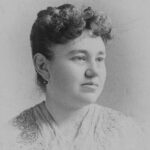Easter means something different to everyone, whether it’s rooted in faith, focused on family, or simply about colorful eggs and springtime fun.
Jenna Zerr | jbzerr15@ku.edu
With the holiday weekend quickly approaching, KU students shared how they’re celebrating, and the history behind these beloved traditions.
Easter is the oldest celebration in the Christian calendar, commemorating the resurrection of Jesus Christ. Its timing each year is no accident as Easter falls on the first Sunday after the first full moon following the spring equinox, a method established all the way back in 325 A.D. by the Council of Nicaea.

On campus, students are preparing in all kinds of ways. For some, Easter weekend means travel and time with loved ones.
“I’m actually going to visit my family in Denver for Easter and we’re going to go to Mass, probably go out to dinner and it’s also my baby cousin’s baptism, so we get a little two-in-one this weekend,” KU student Adyson Acosta said.
For others, Easter is deeply connected to their spiritual life and giving back to their community.
“I sing in a church choir at Corpus Christi Catholic Church, so that’ll be the biggest thing,” KU student Leon Pickert said. “I have to sing at two Masses, which will take up a large part of the day. After that, I’d like to go to brunch, but I don’t have any plans.”
While KU students are making their own Easter memories, many are also unknowingly participating in centuries-old traditions. Attending church services, gathering with family, and even Easter egg hunts have roots going back hundreds of years. The Easter Bunny, for example, was introduced to America by German immigrants in the 1700s, evolving from the “Osterhase,” a mythical rabbit said to lay colored eggs for children.
Whether the weekend involves mass, music, or mimosas — there’s no right way to celebrate. What matters most is the meaning it holds for each person.






